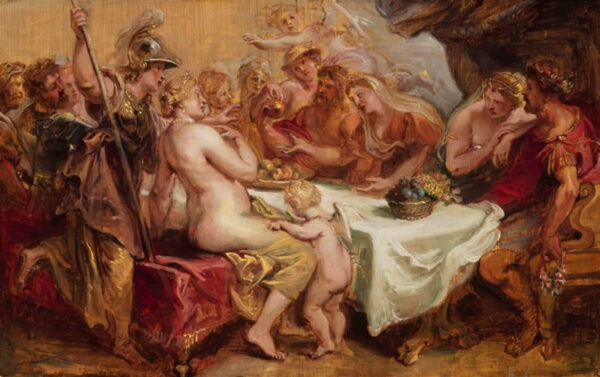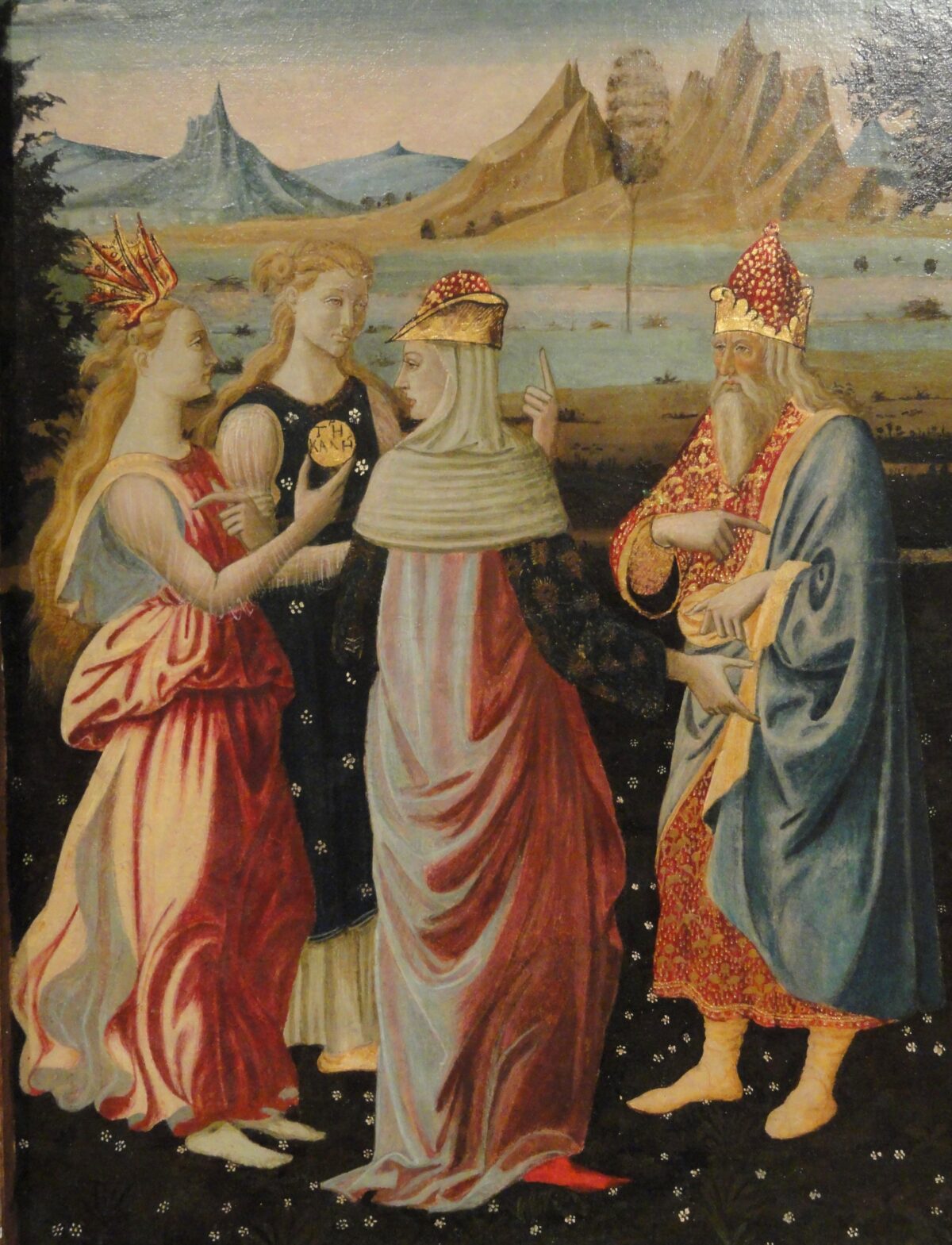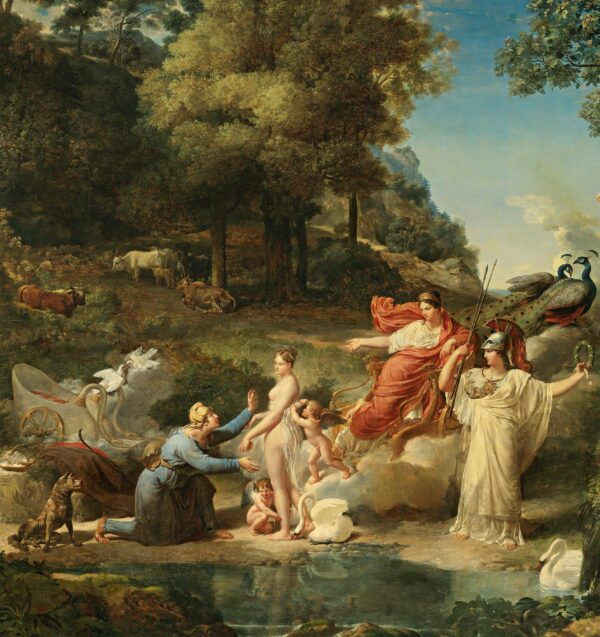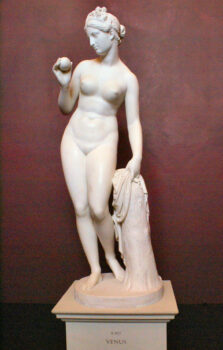The Judgment of Paris: Who Are We Ignoring?
- Inspired Original
- Mar 20, 2020
- 7 min read
Updated: Apr 20, 2023

One of the greatest stories in Greek mythology is that of the Judgment of Paris. It is in a way a simple story, but beneath the seemingly obvious veneer of “who is the fairest of them all?” there are profound implications that speak to us today, for this story will always resonate so long as human beings reflect on their lives.
First, though, what exactly is the story? It is the prelude, or the cause célèbre, of the Trojan War. Homer does not exactly deal with it, but his masterpiece “The Iliad” and the death of Achilles directly follow from the Judgment of Paris, as do the wanderings of Odysseus once Troy is sacked. Put another way, a whole civilization, Troy, and 10s of thousands of people on both sides are destroyed as a result of the judgment. What seems inconsequential proves to have massive implications.
To illustrate this in relatively modern terms, we might think of Gavrilo Princip, a 19-year-old nobody, yet a terrorist, who in 1914 shot Archduke Ferdinand of Austria. This triggered World War I, the death of millions, and the fall of at least three major empires: the Russian, the Austrian-Hungarian, and the German.
Paris himself was the son of King Priam of Troy. He was especially handsome, though it had been prophesied before his birth that his life would lead to Troy’s destruction.
At the wedding of the man Peleus and his bride, the goddess Thetis, all the gods were invited except Eris. She was the goddess of strife and too disagreeable to invite to such a lovely wedding. Eris gets her revenge by throwing into the wedding party the prize of a golden apple that is inscribed with the words “for the fairest” (or, “to the most beautiful’). Immediately, three major goddesses claim the prize as their own.

And so begins the saga. First thing to notice is that no male seeks to claim to be the “fairest.” The Greeks clearly understood that this was a feminine thing; if the apple had said “for the strongest of them all,” then a fight between males would almost certainly have ensued, and probably immediately! What women (typically) want—to be “beautiful”—is not what men (typically) want. Their psychologies, like their physiologies, are different.
Three senior goddesses of Mount Olympus claim the prize as their own. (Poor Thetis, the bride on her wedding day doesn’t enter in.) These goddesses are Hera, queen of heaven and wife of Zeus, who as king of the gods is by far the most powerful; Athena, the goddess of wisdom and war strategy, or more succinctly put, of victory, and also Zeus’s favorite daughter; and finally, Aphrodite, goddess of love and sex, and whose origins are more complex, being in one sense Zeus’s own aunt.
Even for the king of the gods, a decision would be impossible in such a situation: his wife versus his daughter, to highlight only one conflict of interest. And so, Zeus decrees that the young, handsome prince Paris, who is tending flocks on Mount Ida, will be the arbitrator and decide which goddess is the most beautiful and will receive the golden apple.

The Young, Inexperienced, and Bribable
The young, inexperienced Paris is suddenly confronted by the three goddesses and, unsurprisingly, is terrified. Ancient vase paintings depicting the scene show Paris trying to escape in fear at the approach of the goddesses. Nevertheless, he is asked to judge, and then a very human thing happens: Each of the three goddesses attempts to bribe him, to make him an offer he can’t refuse.

Hera offers him imperial power: his scepter to extend over Asia and Europe too—to be a great emperor therefore. Athena offers him victory in battle: He will lead a Trojan army that will overthrow Greece, a reverse of Alexander the Great, as it were. And what about Aphrodite? She offers him the most beautiful woman in the world as his consort and wife. Political power, military success, or great romance.
The point about the Greeks and their philosophies, of course, was that the god Apollo’s maxim was writ large as proverbial wisdom, and that was “moderation in all things,” or not too much of any one. Excess in any of our choices can lead to unexpected consequences that can potentially destroy us. I like to think of Paris’s choice here as analogous to those facing the Greek philosopher Plato.
Plato and his successors wrangled over what we call three transcendental realities, namely, goodness, truth, and beauty. In a sense, the choice Paris must make is between these three: goodness (Hera, as queen of heaven), truth (Athena, as goddess of wisdom), and beauty (Aphrodite, as goddess of love, sex, and attraction). And oftentimes, it is these three criteria (transcendentals, if you will) that determine our choices. Indeed, the best example, and fullest-blown catastrophe where all three of these criteria come into play comes at the beginning of our time.
Eve’s Excesses
In verse 6 of chapter 3 of the book of Genesis, we find the temptation of Eve framed in these terms: “When the woman saw that the tree was good for food [goodness], and that it was a delight to the eyes [beautiful], and that the tree was desirable to make one wise [truth], she took from its fruit and ate; and she gave also to her husband with her, and he ate.”

Here, of course, there is no moderation at all. Eve and subsequently Adam are entirely seduced by an overwhelming desire to possess all three properties, rather than restrict or limit their appetites. But the thing to note is the unintended consequences of bad choices.
So, to return to the really important point about Paris’s decision, we need to keep in mind that, as Jung observed, the gods or goddesses we ignore are spiritual entities that have not been integrated into our personalities. Therefore, we are not “whole” or healthy, and these gaps will manifest themselves in ways that we cannot foresee.
Take the wedding of Peleus. If we consider this congregation as one “person,” and all of the gods, goddesses, humans, and other guests as subpersonality types, then we see that they were all there. All—except one.
The gods of our human psychology did not accept the presence of Eris, the goddess of strife. And what was the consequence of not integrating her into the “party,” as it were? Strife of unimaginable intensity breaks out across the whole known Greek world. The destruction of nearly everything valuable occurs, and the greatest heroes go down to death while still in the bloom of their youth.
What is happening on the world stage then mirrors what happened long before at a simple wedding reception: The important and powerful goddesses are now at war with each other and will take sides in the conflict to come, based on Paris’s choice.
Again, Jung: “A neurosis is an offended god.” In our times of trouble, who are we offending? Which god or goddess has not been given his or her due in our psyche? And who has been repressed and will exact revenge in the days, weeks, months, and years ahead? What we have denied within will return as outward fate, and there is no escaping it, so Jung thought.
Loving Aphrodite, Ignoring Eris

This story is relevant today as we see conflict everywhere. And as in Paris’s day, we see the same choice for Western society: We choose Aphrodite and ignore other important gods and goddesses. Robert Johnson in his “We: Understanding the Psychology of Romantic Love” remarks that “Romantic love is the single greatest energy system in the Western psyche. In our culture it has supplanted religion as the arena in which men and women seek meaning, transcendence, wholeness, and ecstasy.”
This seems profoundly true today. Notice also the suppression of Eris, or strife, which of course only produces more strife. In secular efforts, we try to create a brotherhood and sisterhood where everyone is equal, and we sing along with John Lennon to “Imagine” a world without conflict. (Ironically, of course, he was shot).
Anyone notice the upsurge in recent years of memes on Facebook, Twitter, and others about “Be kind” and the idea that one must not contradict another human being for fear that the person might suffer some irreversible shock or trauma? How shocking! We want, we insist upon, we must have diversity, for everyone must be included without strife—except diversity of opinion. We can’t have that.
And so, we see from our obsession with Aphrodite and our exclusion of Eris that we too are heading where Paris went—to a place of individual and collective destruction. That is what the choice of Paris tells us.
It’s a matter of tremendous irony that the survivors of the holocaust caused by Paris’s decision turned out to be Menelaus, the cuckold and rather nondescript king and husband of Helen, the most beautiful woman in the world; and Helen herself, of whom it may be said that while she may have been beautiful, she was hardly interesting, wise, or good—and so also nondescript.
Menelaus wants to kill her for her betrayal, sees her in the ruins of Troy, and then falls in love (or is that lust?) all over again and forgives her infidelity! After all, why not? Was she responsible? Of course not. It was the gods who did it, and who gainsays them?
And, of course, once we are not responsible—the gods did it!—we are transported back to our modern world again, where few seem able to take responsibility for their actions, and we revel in a victim culture where others have caused all our problems and we demand compensation.
To avoid this fate, it seems to me that we have to return to those seminal choices we make, and take responsibility for them. Conscious responsibility asks: Which gods are we excluding from the depths of our own self?
The Bible quote is from the New American Standard version.
James Sale is an English businessman whose company, Motivational Maps Ltd., operates in 14 countries. He is the author of over 40 books on management and education from major international publishers including Macmillan, Pearson, and Routledge. As a poet, he won the first prize in The Society of Classical Poets’ 2017 competition and spoke in June 2019 at the group’s first symposium held at New York’s Princeton Club.
Contributed by James Sale
Pure Truth, Kindness and Beauty
It’s a great pleasure to present to you an inspiring story from the Award-winning painter Lauren Tilden. Her painting “Birds of the Air, Grass of the Field” has won the Bronze Award from the NTD International Figure Painting Competition in 2019.
“Working on that painting was a reminder to me not to worry. There is more to life than the issue you are facing at this moment.” – Lauren said.
While contemplating the value of human life, and how precious it is, the artist’s own young daughter became her stand-in, her persona in the painting. Please join us on this wonderful journey to visit Lauren in West Virginia.


